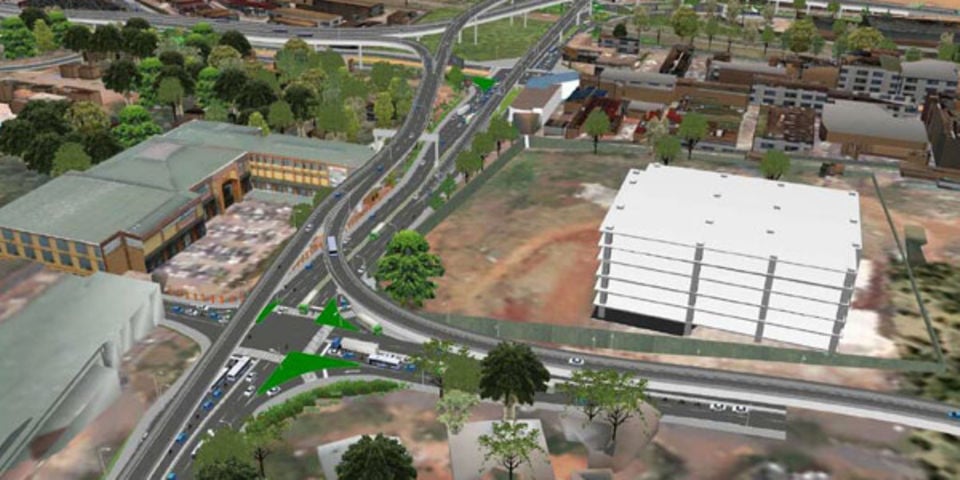Prime
How govt plans to turn Kampala into a smart city

Traffic and solar street lights installed on the refurbished Kira Road. Photo | File
What you need to know:
- Smart cities use modern technology to improve efficiency, share well-timed information with the public, offer better services while promoting economic growth and quality of life for citizens.
- Cities around the world have adopted or begun planning multi-billion smart city programmes.
For the last few years, authorities in Kampala have embarked on several projects to improve the city. One of these is the smart city project.
Smart cities use modern technology to improve efficiency, share well-timed information with the public, offer better services while promoting economic growth and quality of life for citizens.
Cities around the world have adopted or begun planning multi-billion smart city programmes.
In Kampala, there is pressure on what some leaders in the city called “an unenlightened city” to be a “smart city”.
Explaining the government plan to make Kampala City smarter yesterday, Ms Dorothy Kisaka, the executive director of Kampala Capital City Authority (KCCA), highlights the challenges and opportunities that come with a modern city that uses high-tech data to manage assets, resources and service delivery.
She said a smart city is not just a phrase. It’s an operations strategy for mobilising residents and all stakeholders to champion the development of the city of our dreams.
To fast-track the idea, Cabinet last year embraced the project and instructed the National Planning Authority (NPA) through the Ministry of Finance and officials from KCCA to develop a Shs7 trillion five-year-strategic plan which was officially launched in September 2020 by former Prime Minister, Dr Ruhakana Rugunda.
According to the KCCA strategic goal, by June 2025, Kampala will be an inclusive, resilient and well-planned city that provides economic opportunities. At the launch of the plan, the cost was Shs7 trillion.
However, in October 2022, NPA issued a certificate of approval with an adjusted cost of delivery at Shs10.37 trillion for five years. The annual average expenditure is estimated at Shs2.1 trillion.
The Shs10.37 trillion five-year budget is meant to facilitate the five themes in the strategic plan of revolutionising Kampala into a high-tech based city.
The five themes are spurring economic growth, ensuring quality life, building city resilience, city governance and citizen engagements as well as institutional capacity development.
Planned projects
To achieve the smart city goal, the government is set to embark on a number of projects such as infrastructure development, technology and people wellbeing. Ms Kisaka told this publication that the authority will aggressively prioritise the three projects in the year 2023 as part of the smart city agenda.
Under infrastructure development, Ms Kisaka says the government has already set aside Shs1 trillion to improve the outlook of at least 29 roads around the city.
Equally, the authority is setting up a traffic control centre adjacent to City Hall and more than 25 junctions in the city will be upgraded to traffic signal junctions to ensure easy and efficient management of traffic flow in the city.
“Under Infrastructure; we advocate for a visually smart and clean city in all its infrastructure. As smart city champions, we are calling for full-scale city monthly clean ups and we are also improving our infrastructural outlay in roads, markets, taxi parks, outdoor advertising, and public transport use. Citizens should take responsibility for their infrastructure fronts in painting, lighting, and greening in all divisions,” Ms Kisaka said during an interview with the Monitor.
She added: “The government is set to spend $288 million (Shs1.1 trillion) on upgrading roads in Kampala city starting in 2023. This funding has been acquired from the African Development Bank (AfDB). The funding will cover more than 29 roads across the five divisions of the city, especially the worst potholed roads such as Salama, most of the Industrial Area roads among others.”
The refurbishment of the roads is set to commence in February 2023 and this will reduce the time lost in traffic jams, the high vehicle maintenance costs and poor-infrastructure related accidents, among other bad roads-associated challenges.
Digitising services
On the road to the smart city, the government is digitising a number of its services to ease the provision of services to clients. Among the most used e-services include cashless solutions in revenue management, eCitie services for public transport and the Weyonje app for garbage management.

Motorists drive past potholes on Eighth Street in industrial area, Kampala. PHOTO /FRANK BAGUMA
“Technology is one of the clarions calls under the smart city campaign, KCCA is championing ease in doing business in the city through efficient client-centric processes in service delivery and we are already using Smart Permits where developers are served online and on time to obtain their development permits,” Ms Kisaka said.
“The Physical City Addressing Model is also operational and enables our residents to have proper addressing for their homes with effective signage. The electronic procurement (eGP), and use of IFMS (Integrated Finance Management System) in soliciting for service providers are also in place, this has promoted transparency and accountability” she added.
Smart People’s well-being was also raised by the city boss as another fundamental pillar in the transformation to a smart city. According to Ms Kisaka, all city stakeholders must be engaged to promote a smart way of working.
“We work smart by engaging all leaders in governance, public transport sector, business, sister agencies and MDAs (ministries, departments and agencies) to resolve issues that affect citizens. We will build bridges and synergies for effective service delivery with residents and other partners to achieve our goals. The city accommodates different types of people, we must promote coexistence where everyone can win,” Ms Kisaka said.
“We shall not find it so hard to transform. This is because Kampala is a partner member of ASToN (African Smart Towns Network), a network of African cities that want to use digital tools to address local and global challenges. We are also WeGO (World e-Governments Organisation) and World Smart Sustainable Cities Organisation members,” she added.
Other issues to be addressed as Kampala transit into a smart city are; pollution of all forms, e-mobility such use of electric buses, motorcycles and trains, removing of all illegal infrastructures, use of green technologies as well as creating an alternative trading space for hawkers.
Background
In a previous interview, Kampala deputy Lord Mayor Doreen Nyanjura attributes the city’s slow development to the government’s lukewarm financial support, which she says is too little.
Ms Nyanjura argues that the city should be allocated at least one percent of the overall national budget since the city contributes about 60 percent to the country’s Gross Domestic Product (GDP).
“Funding has been our biggest challenge as an authority but the government isn’t bothered at all and that is why you see that we have failed to implement some of our critical infrastructural projects. At 60 years, the country’s capital city is still lagging in terms of infrastructural development. We need to do better as a city if we are to match other cities in the region,” she says.
Ms Nyanjura says their efforts as politicians to reorganise the city through legislation have been frustrated by the government.
“We have come up with ordinances on issues like transport, markets, and transport in vain. Our approach has always been to have an inclusive development which doesn’t violate the rights of the city dwellers because once we don’t plan for such people then they will remain a challenge to the city,” she says.
For the city to realise development, Ms Nyanjura says, the government should give it a priority in terms of funding to facilitate the stalled infrastructure projects.
Other projects
In 2019, KCCA unveiled a 2km non-motorised transport corridor as a pilot project stretching from Entebbe Road via Luwum Street down to Namirembe Road and Berkeley (Bakuli) junction.
Technocrats argue that with the swelling city population where the majority of people walk to work, more non-motorised transport corridors across the five city divisions need to be constructed.
Authorities are also in overdrive to upgrade roads to bitumen standards through various partnerships, the latest being the just-concluded Kampala Institutional and Infrastructure Development Project (KIIDP) bankrolled by the World Bank.

A motorist dodges flooded potholes on Seventh Street in Industrial Area, Kampala on December 22, 2022. PHOTO | FRANK BAGUMA
Some of the roads that have been upgraded under the KIIDP include Makerere Hill, John Babiha (Acacia) Nakawa-Ntinda, Lukuli, Kabusu-Bunamwaya-Lweza, and the Berkley (Bakuli) – Nakulabya-Kasubi stretch along Hoima Road.fuelling this trend.
Kampala lord mayor erias lukwago reacts
At a risk of sounding pessimistic I dare say that transforming Kampala into a smart or livable city during our lifetime could be a fantasy or mirage unless a miracle happens. It requires serious political will and holistic drive towards a total overhaul of the system, robust special planning, mass investment in the infrastructure, mindset change, land reform, streamling governance issues etc. The ideal would be building another administrative city and remodel Kampala as a purely commercial city.
What they say
Ibrahim Ssamanya, taxi driver
I think before discussing turning Kampala into a smart city, our leaders should first address issues affecting the people of Kampala, such as high commodity prices and the [lack of street lights] in the city. People should also be educated on how to live in a smart city.
Paul Ssegujja, resident
We shall welcome the idea of the smart city because change is inevitable. However, proper planning should be made to ensure that the grassroots people are not affected. In most cases every development in this city has left many people jobless or dead.
Titus Nsubuga, businessman
The issue is not a smart city. We only demand for good services, good roads, hospitals and schools. If the above is not solved, I think the debate of the smart city or not is useless.
Becky Nampijja, businesswoman
We are not ready for the smart city, I heard it is based on technology but when you look at the majority of people living in the city, they’re computer illiterate and many cannot even use their phones beyond calling and receiving calls. Let them just solve other problems.
Jane Nassaazi, teacher
Kampala is still lacking to become a smart city, if we are still grappling with challenges like floods and poor hygiene, how are they going to educate people to learn how to use the technologies in the smart city settings.





